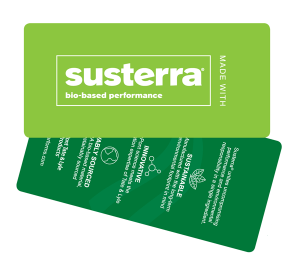 The 1,3-propanediol-producing joint venture between DuPont and Tate & Lyle recently celebrated its 10th anniversary.
The 1,3-propanediol-producing joint venture between DuPont and Tate & Lyle recently celebrated its 10th anniversary.
By Rachael S. Davis, Executive Editor
DuPont Tate & Lyle Bio Products Co. LLC was founded 10 years ago as a joint venture between Wilmington, Del.-based DuPont and London-based Tate & Lyle. The two companies opened a facility in Loudon, Tenn., to manufacture a breakthrough bio-based version of 1,3-propanediol. DuPont’s research and development experience paired perfectly with Tate & Lyle’s fermentation expertise in the joint venture and the company developed a proprietary process to produce 1,3-propanediol using plant-based feedstocks. This petroleum-free, sustainable and renewable source of 1,3-propanediol is used as an eco-friendly building block in a wide variety of consumer products. According to the company, “from ‘cradle-to-gate,’ its bio-based 1,3-propanediol produces 56-percent less greenhouse gas emissions and consumes 42-percent less nonrenewable energy” compared to its petroleum-based counterpart. In addition, the U.S. Department of Agriculture (USDA) has certified its products as 100-percent bio-based under its BioPreferred™ program.
“This joint venture started as a revolutionary innovation project that applied the tools of modern biotechnology to make high-performance biomaterials in a much more sustainable way than traditional petro-chemistry,” stated Michael Saltzberg, global business director, biomaterials, DuPont Industrial Biosciences. “Its track record of success has inspired the academic and industrial science community around the world to invest in industrial biotech and is a case study of how to successfully innovate in this space.”
Bio-PDO™ is a key ingredient in DuPont™ Sorona® high-performance polymers, which find applications in apparel, carpet and automotive textiles. The company also markets the 1,3-propanediol under two brand names: Susterra®, which is used in polyurethanes, unsaturated polyester resins and heat-transfer fluids; and the preservative-boosting humectant Zemea®, which is found in cosmetics and personal care items, foods and flavors, pharmaceutical and dietary supplements, and laundry and household cleaning products.
“We’ve grown past what was previously imagined,” said Todd Sutton, president, DuPont Tate & Lyle. “The versatility of the product allows us to support the DuPont Sorona business as well as grow organically with Zemea and Susterra propanediol. The benefits of creating high-performing solutions in combination with renewability allows us to continue to expand our reach in the personal care, food, polyurethanes and heat transfer fluids markets as well as many other applications.”

10-Years Strong
To mark the 10-year anniversary, the company recently gathered customers and partners in Loudon. Guests heard from DuPont Tate & Lyle executives as well as partners who shared their stories and spoke about their partnerships with the company. Todd Sutton was the emcee during the presentations. Speakers included Michael Saltzberg; Steve Hurff, vice president, marketing and sales, DuPont Tate & Lyle; Marie Wheat, industry economist, USDA, BioPreferred Program; Jeff Meadows, senior vice president, Residential Carpet Sales, Mohawk Industries; Jeff Heverley, regional vice president, Interstate Chemical Co.; Steve Schnittger, global vice president, Microbiology, Estée Lauder; and Gerry Schlueter, plant manager, Tate & Lyle facility, Loudon. Attendees also toured the facility to see first-hand how the bio-based product is made.
During the event, the company also announced several new developments — a new hang tag program for the Susterra brand, a collaboration with Wichita, Kan.-based Invista’s CORDURA® brand and a new sunscreen product featuring Zemea.

The hang tag is first in a planned series of hang tags to help educate consumers about the components used in the products they buy. Three advantages of Susterra are noted on the hang tag. “With this first hang tag, companies using Susterra propanediol to manufacture high-performing, bio-based films, coatings or adhesives for the apparel and footwear industries will have a convenient and effective way to differentiate their products and address consumers’ traceability concerns,” said Laurie Kronenberg, global marketing director, DuPont Tate & Lyle Bio Products.
The Cordura brand is celebrating its 50th anniversary in 2017 and it was announced DuPont Tate & Lyle has paired with Cordura to develop performance fabrics featuring sustainable, bio-based materials. “We are thrilled to be working together with the Cordura brand, combining our unique capabilities and expertise, and building on our track records of delivering innovation to the marketplace,” said Kronenberg. “Together, we can revolutionize the future use of sustainable textiles by delivering innovative solutions that marry the legendary long-lasting durability of Cordura fabrics with the bio-based performance of Susterra propanediol-based membranes and coatings.”
“Our partnership with DuPont is a great example of bringing the best of two organizations together to create a first to market product and process that continues to demonstrate versatility and functionality in the global marketplace,” said Greg Wenndt, vice president and general manager, industrial starch and bioventures, Tate & Lyle. “We are proud of the success we’ve built together and share our congratulations with our DuPont partners and the DuPont Tate & Lyle teams around the world for achieving a decade of great work and continued innovation.”
May/June 2017




